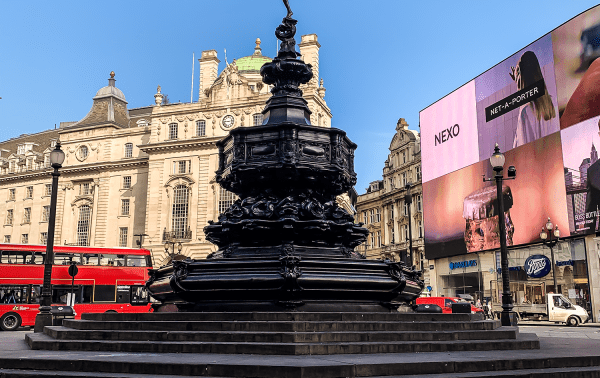
Political update
21 September 2022
Liz Truss has been appointed Britain’s 56th Prime Minister.
Plans for Government
Truss will focus firstly on inflation and the cost of living crisis and then on implementing her long term agenda, which includes a return to perceived core Conservative values of low taxation, deregulation, and free trade. She has said that her ideology is governed by three principles: focussing on people’s priorities, ensuring that everyone has a shot in order for a free-market economy to succeed, and that the state should help people on the margins take control of their own lives. As Chief Secretary to the Treasury, she had previously expressed her desire for a state that ‘does less, better’, as well as the need to tackle vested interests in the utilities, transport and planning sectors, arguing for deregulation across the board.
Policy Areas
Economy and Cost of Living
Truss has pledged to:
Reverse the national insurance rise and the planned corporation tax rise
Introduce a temporary moratorium on the green energy levy
Maintain the Bank of England’s independence but reassessing its mandate to better deal with inflation
Review business rates and taxes for the self employed
Create ‘investment zones’ and liberalise free ports
Review EU worker protections such as the 48-hour working week
Cost-of-living crisis:
A fiscal event is expected on Friday to reverse the national insurance rise and the planned corporation tax rise
Energy support for businesses and households (see below/here)
Truss is thought to be considering increasing Universal Credit, additional help for pensioners, a five per cent reduction to VAT, and cutting stamp duty
Regulatory Reform
Truss has pledged to repeal or replace all EU-derived regulation by the end of 2023.
She has spoken about plans to deregulate the financial services sector, and it has been rumoured that the cap on bankers’ bonuses will be removed
The roles of the Financial Conduct Authority, Prudential Regulation Authority, and the Payments Systems Regulator are reportedly set to be review to increase their focus on economic growth, perhaps by merging them.
Net Zero and Energy
Truss has pledged to retain the net zero 2050 target, but caveats include that it should be done without reducing household incomes or damaging businesses.
With Truss eager to see a rollout of fracking nationwide, there have been concerns that the net zero target may be slipping further from grasp
Truss has ruled out government rationing of energy and is opposed to solar panels on productive agricultural land
She has committed to expanding nuclear power usage, supporting offshore win energy, reviewing the energy and water regulators, holding water companies to account on pollution
Cabinet
Dr Thérèse Coffey MP has been appointed Deputy Prime Minister and Secretary of State for Health and Social Care. Widely regarded as Truss’s closest confidante in Westminster, Coffey has strong links across the parliamentary party and is seen as somebody who gets things done. She will play a significant role in helping Truss to hit the ground running in this crucial first month of her premiership, as well as ensuring the Prime Minister has a presentable record of delivery ahead of the next General Election. As Health Secretary, Coffey also takes charge of a health service which finds itself in perpetual crisis, with soaring waiting lists and significant staff shortages just two of the many urgent issues she will need to grip from day one.
In another well-anticipated move, Kwasi Kwarteng MP has taken the reins at HM Treasury, becoming Chancellor of the Exchequer. Kwarteng will be a central cog in decisions around how the government will support consumers and businesses through the growing energy crisis. A firm free-marketeer and a close ally of Truss, Kwarteng has stated over recent days that the Truss government will act in ‘a fiscally responsible way’ but that it would also be ‘bold’ in promoting growth and rejecting the ‘economic managerialism’ which has left Britain with ‘a stagnating economy and anaemic growth’.
As expected, Jacob Rees-Mogg MP has been appointed Secretary of State for Business, Energy and Industrial Strategy. He will also be central to Truss’ plans to tackle the energy crisis, having already held talks with energy companies recently. Rees-Mogg has complained that the ‘huge regulatory cost’ of net zero will hold back plans for post-Brexit deregulation, adding that keeping the costs of the net zero push as low as possible is ‘fundamental’ and should be driven by technological innovation rather than ‘endless regulation’. Rees-Mogg favours lifting the moratorium on fracking where there is community support and is also expected to proceed with a new licensing round for North Sea oil and gas exploration, having previously said that Britain should pursue ‘every last drop’. However, whilst there is likely to be a clear change in rhetoric and a slight shift in urgency under Rees-Mogg, there is no suggestion that the 2050 net-zero target itself – which is enshrined in law – will be reversed. There will also be a separate Minister of State for Climate, Graham Stuart MP, attending Cabinet.
Chris Philp MP takes on the key role of Chief Secretary to the Treasury, a position once held by Truss herself, whilst free-marketeer Kemi Badenoch MP takes over at the Department for International Trade at a time when Britain needs to continue rejuvenating its global presence. Michelle Donelan has also replaced Nadine Dorries at DCMS and will likely face growing pressure from the right of the party in the coming days and weeks to implement fundamental changes to the Online Safety Bill.
Paul Scully MP has been reappointed as the Minister for London within BEIS.




